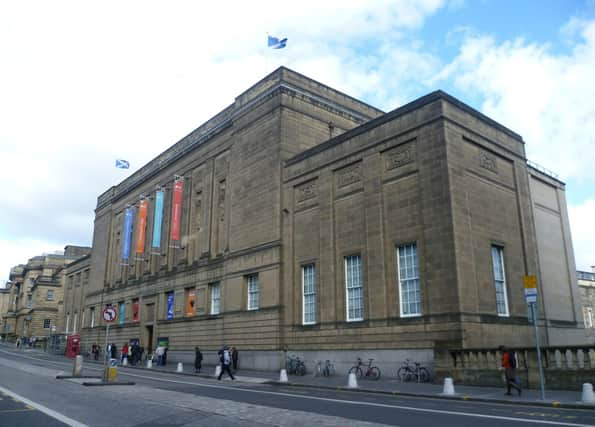Scotland on Sunday letters: Library's living document to address discriminatory language


As part of this work, we are addressing the use of inaccurate and offensive terms in our collection descriptions and interpretation.
Non-inclusive and discriminatory terminology both hinders people's ability to discover items in catalogues, and may also cause them significant distress. So we are working to substitute these terms with appropriate terminology in the descriptions.
Advertisement
Hide AdAdvertisement
Hide AdTo be clear, we are not altering the collections themselves but instead are looking to improve the ways in which we make our collections accessible. It’s a thoughtful, continuous process which includes working with librarians and archivists around the world to collectively develop the international cataloguing standards we all adhere to.
When working at the Library last year, Carissa Chew developed a highly impressive inclusive terminology glossary. This is already serving as a guide for our staff who are working to identify and address discriminatory language in our indexes and descriptions.
The glossary will be a ‘living document’ for as long as language continues to evolve. Individuals with expertise in the areas of culture, heritage and history will continue to review and adapt these terms, a practice that archivists have employed for decades.
Alison Stevenson, Associate Director of Collections & Research, National Library of Scotland
Buffer zones
Your article on the campaign for ‘buffer zones’ around abortion clinics (24th October) refers to the legal challenge made by Alina Dulgheriu to the imposition of the buffer zone around an abortion clinic in Ealing.
It is sad that the article did not also mention Alina’s own personal experience and testimony; she was given the emotional and practical support by a vigil outside an abortion clinic, to keep her baby. This is the human story – one of many – behind the prayer vigils.
There are 13,000 abortions in Scotland every year. If abortion doesn’t end a human life then it’s not controversial. If abortion does end life, then offering alternatives to women facing unexpected pregnancy and praying peacefully at a vigil outside an abortion clinic is a very restrained response.
Banning prayer vigils will not improve the situation for women in deprived areas who have abortion rates twice as high as women from affluent areas. We need a proper national debate that recognises, and seeks to address, this inequality, enabling women to choose life for their babies.
Ruth Wade, Edinburgh
Private protest
Advertisement
Hide AdAdvertisement
Hide AdReading Dani Garavelli's article about anti-abortion protesters prayingloudly and ostentatiously outside clinics, I wondered whether they wereaware of the passage in Matthew chapter 6, where Jesus specificallyinstructs his disciples not to make a public show of praying 'as do thehypocrites' but rather do so in private?Jane Ann Liston, St Andrews
Too feart
If there is no advantage in giving a positive "Yes" answer in any possible referendum question as the Nationalists side claim, then they can and should have no objection to the question being "Should Scotland stay part of the UK" Yes, or No? Or, is Nicola Sturgeon "assuming a certain level of intelligence on the part of people listening to her" and is "too feart" they might understand it.
Allan Thompson, Bearsden, Glasgow
Write to Scotland on Sunday
We welcome your thoughts. Write to [email protected] including name, address and phone number – we won't print full details. Keep letters under 300 words, with no attachments, and avoid 'Letters to the Editor' or similar in your subject line.
Comments
Want to join the conversation? Please or to comment on this article.
